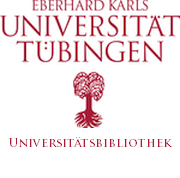Konturen einer anti-identitären Sozialethik
DOI:
https://doi.org/10.18156/eug-1-2020-art-11Abstract
Eine anti-identitäre Sozialethik beschäftigt sich selbstkritisch mit Phänomenen der Exklusion und der Inklusion. Dabei kann sie nicht völlig auf Identitätsdiskurse verzichten, da sowohl Identitäten des Individuums als auch Gruppenidentitäten für eine normative Theorie der Gesellschaft konstitutiv sind. Der Beitrag rekonstruiert die aktuelle Auseinandersetzung mit identitären Extremen vor dem Hintergrund der schon einige Jahrzehnte zurückliegenden Debatte zwischen Liberalismus und Kommunitarismus, in der es zumindest strukturell um vergleichbare Fragen ging. Die bis heute andauernde Diskussion kreist letztlich um eine Krise von Grundannahmen des politischen Liberalismus, der massiv unter Druck geraten ist. Die unvermeidbare Verständigung über fluide und offene Identitäten ist zu unterscheiden von identitätpolitischen Zuspitzungen, auf die sozialethisch in Stil und Themenwahl mit Mitteln geantwortet werden kann, mit denen sich identitäre Verkrampfungen in einigen Fällen lösen lassen.
An anti-identitary social ethics has a self-critical approach of phenomena of exclusion and inclusion. However, it cannot completely do without identity discourses because the identities of individuals and of groups are constitutive for a normative theory of society. The article reconstructs the current confrontation with identity-laden extremes in the light of the debate between liberalism and communitarianism that started some decades ago dealing with at least structurally comparable questions. The ongoing debate is finally on the crisis of key assumptions of political liberalism that is massively under pressure. The unavoidable communication on fluid and open identities has to be distinguished from the options of identity politics. Social ethics can reply by a specific style and the choice of topics and thus provide resources which can sometimes relieve tensions caused by simplistic assignations of identity.






